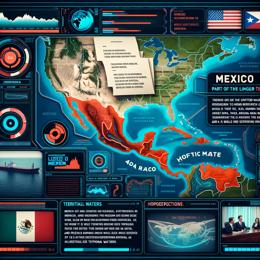Image created by AI
Iran Moves to Lift Ban on WhatsApp and Google Play, Easing Internet Restrictions
In a landmark decision, Iranian authorities have agreed to lift the ban on WhatsApp and Google Play, marking a significant step toward loosening the country’s stringent internet restrictions. This development comes as the newly appointed government under President Masoud Pezeshkian heeds calls for greater technological and social freedom.
The announcement was made by Iran's official IRNA news agency following a congregation led by President Pezeshkian. It sees the fulfillment of one of Pezeshkian’s campaign promises as he took office in July, highlighting a shift in the governmental approach towards internet governance in Iran.
The Minister of Information and Communications Technology, Sattar Hashemi, heralded this move as the first phase of a larger plan to dismantle the internet limitations that have long been imposed on the Iranian populace. Although the exact timeline for the implementation of this decision remains unclear, its announcement has stirred a mixture of anticipation and skepticism across the nation.
The backdrop to this shift is critical to understand. Social media platforms have played a pivotal role in facilitating antigovernment protests in Iran, the most recent being sparked by the tragic death of Mahsa Amini in September 2022. The country’s treatment of internet access has been a focal point of international scrutiny, with the United States urging tech giants in September last year to find ways to circumvent online censorship in countries like Iran.
The decision to reintroduce WhatsApp and Google Play has sparked widespread debate within Iran. Critics of the previous internet restrictions have heralded this move, highlighting the economic and social costs that the restrictions imposed on the citizens. Ali Rabiei, a presidential adviser, voiced on X (formerly Twitter) that the restrictions had brought nothing but "anger and added costs to people’s lives."
However, not all feedback has been positive. Some conservative elements within Iran have expressed concerns. The reformist Shargh daily reported that a considerable faction within the parliament remains opposed to the unbridled access to these platforms unless they conform to the moral and legal frameworks of the Islamic society of Iran.
This partial lifting of internet restrictions doesn't yet extend to other major platforms such as Facebook, YouTube, and X, which have been blocked since 2009. While WhatsApp and Google Play are set to become accessible, the full spectrum of internet freedoms demanded by many protestors and international human rights groups remains unaddressed.
The widespread use of VPNs by Iranian citizens signifies the ingrained desire and practical attempts to bypass internet restrictions. As the country navigates these significant policy changes, the global community watches closely, hoping that these steps are the beginning of a broader move towards greater freedom and access to information in Iran.










